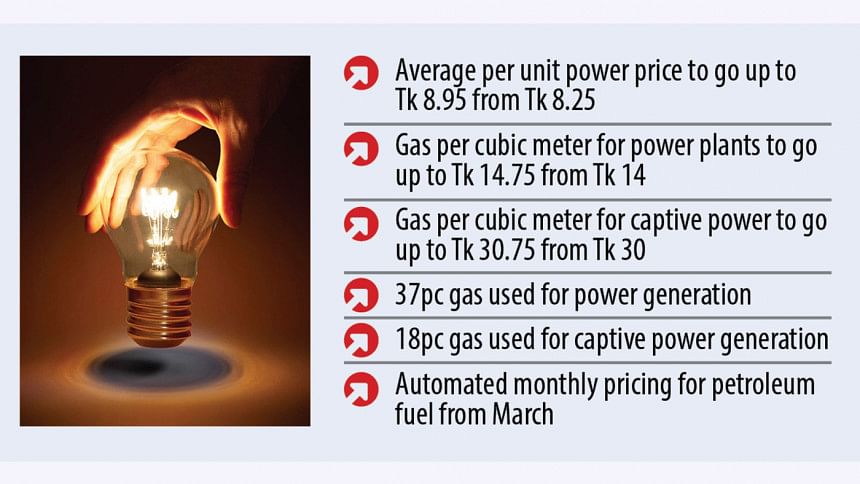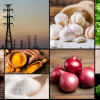Hefty power bill to weigh on consumers

The government has decided to increase electricity prices by Tk 0.34 and Tk 0.70 a unit from March, which according to experts will have a domino effect on the prices of essentials ahead of Ramadan.
The authorities have already increased by Tk 0.75 per cubic metre the price of gas supplied to power plants and for captive power generation, said a gazette issued by the Energy and Mineral Resources Division yesterday.
At present, the price of each cubic metre of gas used for power production is Tk 14 and captive power is Tk 30.
Complying with an IMF condition for the $4.7 billion loan, the government is introducing an automated pricing formula for petroleum in the first week of March.
According to power division officials, the new electricity prices will be in effect from March 1, and the prime minister has approved it.
State Minister for Power and Energy Nasrul Hamid yesterday told reporters that around one crore subscribers who use very little (fewer than 200 units) electricity would pay only Tk 0.34 more per unit while the rest would pay Tk 0.70 more.
This means per unit tariff will be Tk 8.95 from the current Tk 8.25 and bulk unit tariff will be Tk 7.04 from Tk 6.70, according to the power division.
Between January and March last year, electricity prices were raised in three phases.
Nasrul yesterday said the government was just adjusting, not increasing, power prices.
"We are adjusting it with fuel prices, something every other country routinely does… We have no other choice but to adjust power prices in line with the fuel cost," he said.
The average production cost of electricity is Tk 12 a unit, he said, adding that the rate of subsidy increased last year as the taka lost its value against the dollar.
"Subsidies this year will be around Tk 43,000 crore for electricity and around Tk 6,000 crore for gas."
The government is making price adjustments to gradually withdraw subsidies from the power sector, he said.
"Such adjustments will be made slowly but gradually in the next two to three years."
Contacted by this correspondent, Golam Rahman, chairman of Consumers Association of Bangladesh (CAB), said people were already struggling with rising prices of essentials and the move would make it worse.
"The initiative of bringing the entire country into the electricity network is praiseworthy. But consumers are bearing the brunt of many wrong choices, like over capacity," he said.
Selim Raihan, executive director of the South Asian Network on Economic Modeling, said the government's ability to subsidise power has been shrinking due to low revenue.
"But the concern is, the raised power tariff will put pressure on inflation. Businesspeople often use Ramadan as an excuse to increase commodity prices. Now they have another excuse," he said.
CAB Vice-president M Shamsul Alam said the government increased power prices, bypassing the Bangladesh Energy Regulatory Commission (BERC), an independent regulatory body.
This is unfair to consumers because the BERC public hearing was a process in which people could raise questions against such moves.
A 2022 amendment to the BERC act now allows the government to fix energy prices under "special circumstances" without BERC involvement.
GAS PRICES RAISED FOR POWER GENERATION
Prices of gas used in households and vehicles have not been increased, said Nasrul.
According to the energy ministry, 37 percent of gas is used for power generation while captive power consumes 18 percent of the gas.
About the introduction of automated pricing for petroleum, Nasrul said, "We are going towards dynamic pricing with the finance ministry's consent."
Energy division officials said petroleum prices would be adjusted every month in line with the fuel prices in the global market.

 For all latest news, follow The Daily Star's Google News channel.
For all latest news, follow The Daily Star's Google News channel. 







Comments